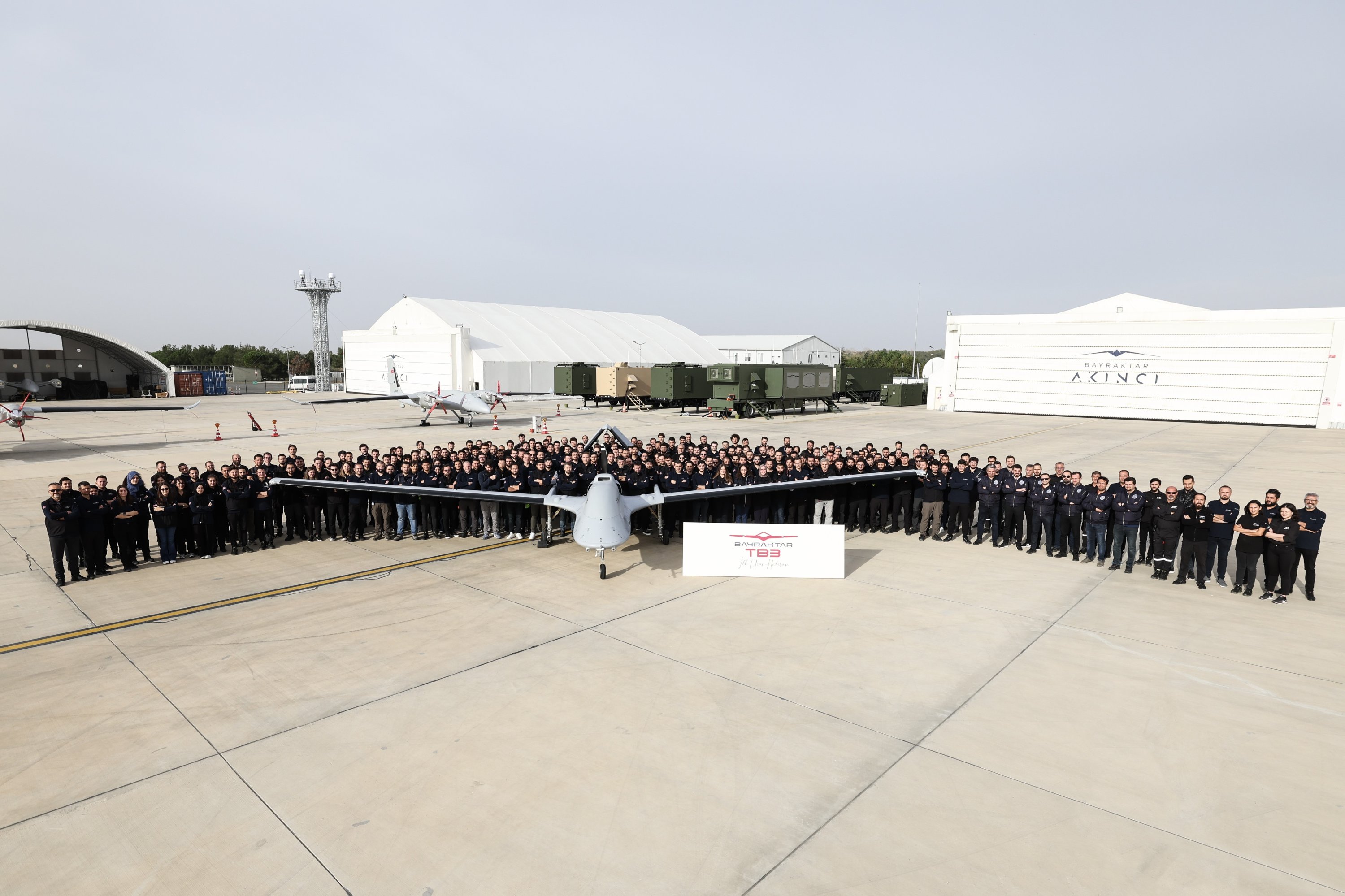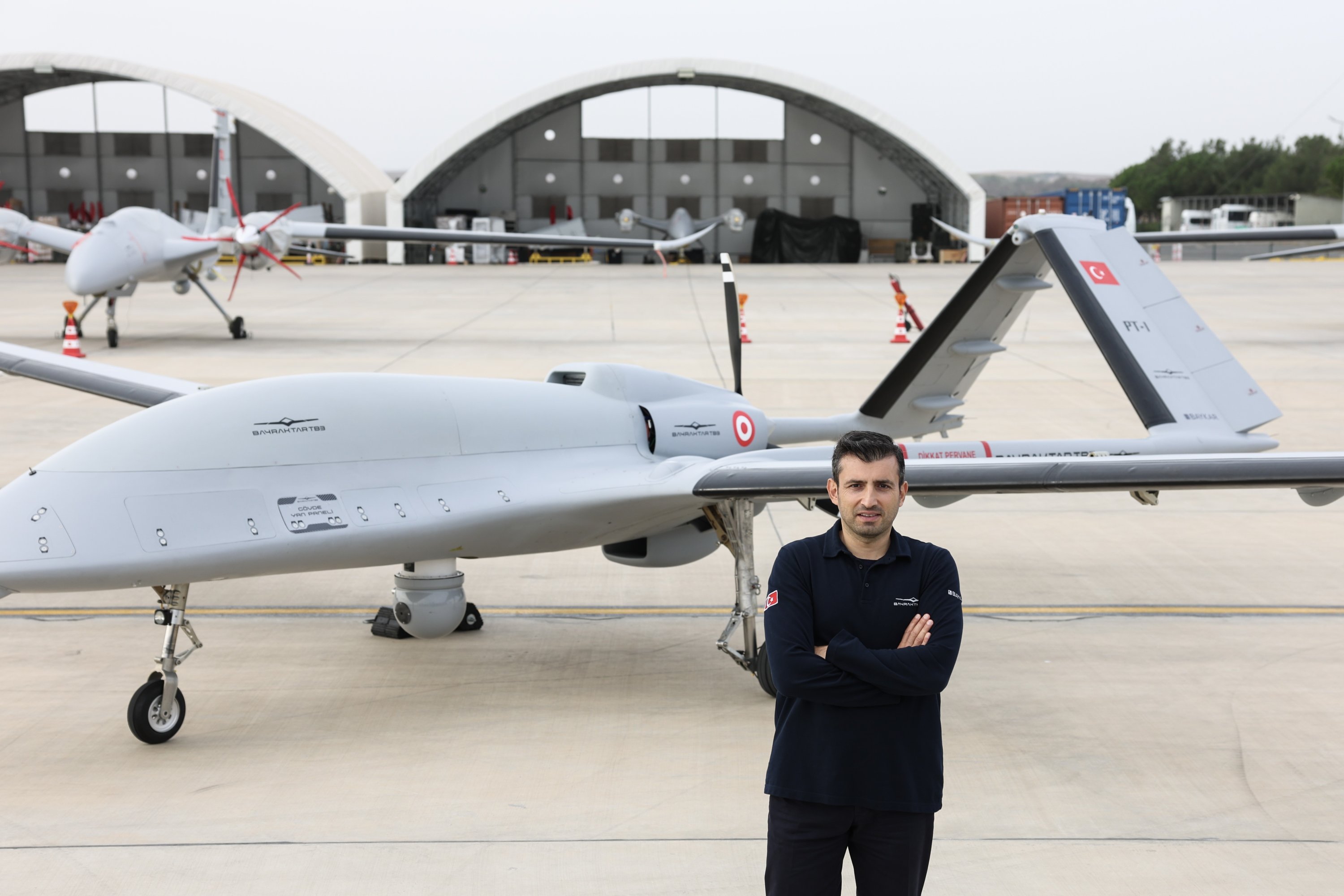© Turkuvaz Haberleşme ve Yayıncılık 2026
Türkiye’s new unmanned combat aerial vehicle (UCAV), tailored for the country’s newly commissioned aircraft carrier, on Friday successfully took to the sky for its inaugural flight, its developer announced.
The milestone comes as Türkiye celebrates its centenary, encouraged by the profound transformation achieved in its defense industry, marked by a range of homegrown air, land and marine platforms spearheaded by combat drones.
“On the Republic of Türkiye's centennial, the Bayraktar TB3 unmanned aerial vehicle successfully completed its maiden flight,” Selçuk Bayraktar, Baykar’s chief technology officer (CTO), said in a video on the social media platform X, formerly known as Twitter.
The TB3, a short-runway-capable version of Baykar’s famed Bayraktar TB2 platform, rolled out on a runway in northwestern Türkiye before taking off from the Çorlu Flight Training and Test Center.

It is the first of its kind, boasting the ability to fold its wings and capable of landing and taking off from a ship.
It is expected to be able to stay in the air more, climb to higher altitudes, and carry more weapons than the TB2, which helped swing conflicts in multiple countries, such as Azerbaijan and Libya, and lastly, in Ukraine.
The TB2s played a pivotal role in countering Russian forces early into Moscow’s invasion.
The TB3 is designed for deployment from a newly commissioned aircraft carrier, the TCG Anadolu, also dubbed the world’s first drone carrier.
The ship’s air wing will also consist of Baykar’s unmanned fighter jet Kızılelma, which completed its maiden flight last December.
“Last year, per our promise to our nation, we completed the first flight of our country’s first unmanned combat aircraft, Bayraktar Kızılelma, right here,” said Bayraktar.
“That happened just one month before the 100th year of our Republic, and today, approximately one year later, we have successfully carried out the first flight of the Bayraktar TB3, which can take off from and land on short-runway ships of our country.”

Kızılelma represents a significant expansion of capabilities for slow-moving reconnaissance and missile-carrying drones. It promises to increase the existing platforms' top speed and carrying capacity.
Powered by a jet engine, Kızılelma shows similar exterior features to fifth-generation fighter jets. In addition to conventional drone missions, it can conduct air-to-air engagements.
The TB3 is expected to have a range of 1,000 nautical miles, that is, 1,900 kilometers.
Once they start operating on the TCG Anadolu air wing, TB3 and Kızılelma will “revolutionize the history of warfare – just like our UCAVs,” said Bayraktar.
“Let this be our gift to the centenary of our Republic.”
